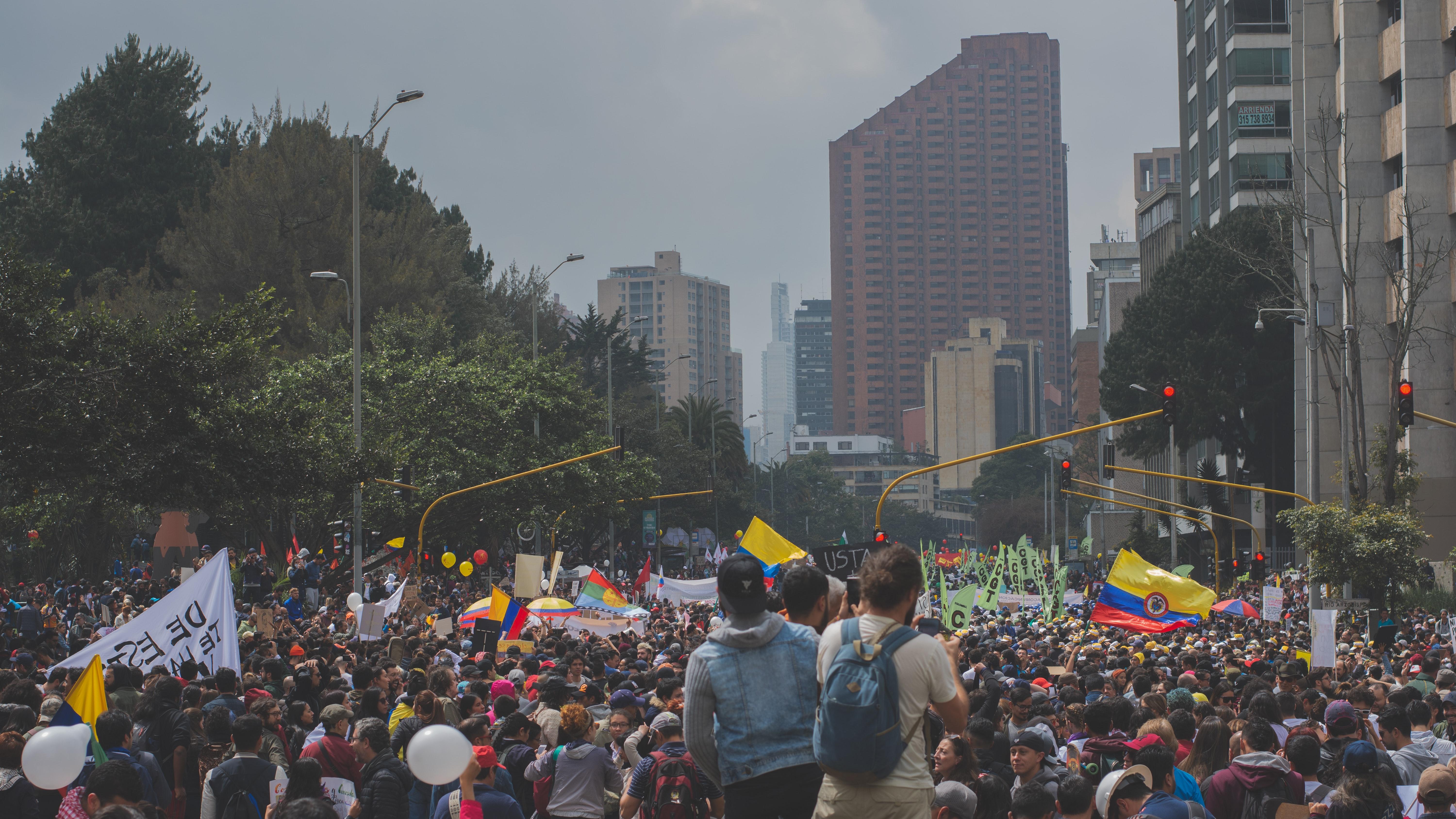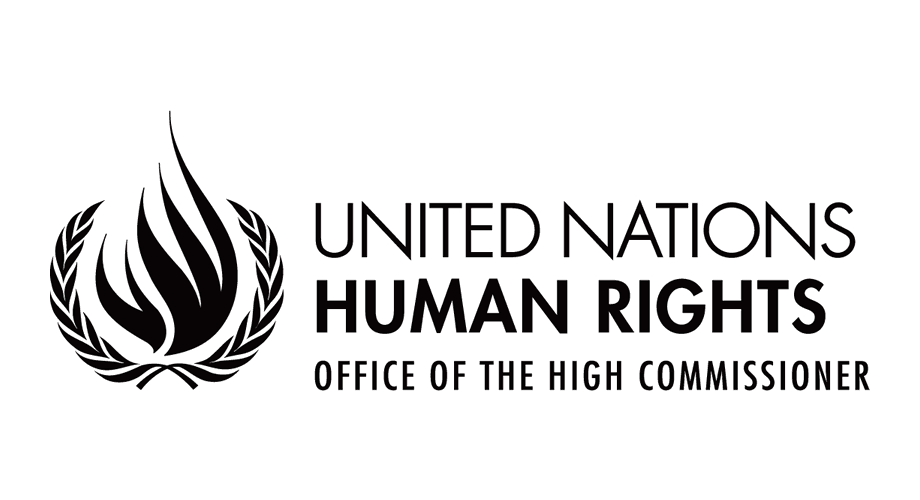- Home
- About Us
- Issues
- Countries
- Rapid Response Network
- Young Adults
- Get Involved
- Calendar
- Donate
- Blog
You are here
IRTF News
News Article
March 1, 2021
The Pacific port city of Buenaventura has a long history of violent conflict, which led to it being dubbed Colombia's "capital of horror". Since 1988, armed gangs have battled for territorial control of drug routes out of the port and carried out gruesome dismemberments in "casas de pique" (Spanish for chop houses). Buenaventura is now suffering a new wave of violence, and midwives like Feliciana Hurtado put themselves at risk by confronting armed fighters to help women living in violent areas deliver babies.
News Article
February 28, 2021
WOLA (Washington Office on Latin America) summarizes recent human rights cases in Colombia from the past several weeks including murders of social leaders, violence and threats towards Indigenous and Afro-Colombian elders and social leaders, violence of paramilitary towards individuals and in Indigenous territories, and continued fighting of paramilitary groups in Buenaventura, the large port city on the Pacific coast. The city’s majority Afro-Colombian population lacks access to necessities like clean water, decent jobs, and educational opportunities. Residents are calling for major policy changes to address both the current conflict and underlying issues.
RRN Letter
February 26, 2021
ADISPA is doing critical work to protect the Amazonian Pearl Peasant Reserve Zone (ZRCPA) of Putumayo by promoting reforestation initiatives and denouncing the socio-environmental effects of oil extraction operations. For that reason, powerful groups want them out of the way. The InterChurch Commission of Justice and Peace (CIJP) recently verified a plan by the the armed group Comando de la Frontera (Border Command) to kill or displace members of the Association for the Integral and Sustainable Development of the Amazonian Pearl (ADISPA). During the first weeks of 2021, the Comando de la Frontera visited some of the 700 families who live in the ZRCPA to tell them that ADISPA should disappear, and that no social organization that wants to work in the territory could do so if it disobeys their rules. Because of these ongoing threats, we are urging that authorities in Colombia grant members of ADISPA protection measures, in consultation and in agreement with them.
News Article
February 26, 2021
Michelle Bachelet, High Commissioner for Human Rights (UNHCHR), presented her oral update (https://www.ohchr.org/EN/NewsEvents/Pages/DisplayNews.aspx?NewsID=26806&...) as well as her reports on Colombia, Guatemala, and Honduras. Few countries in the world were as open to international human rights scrutiny as Colombia, which has the largest UNHCHR in Latin America and serious deadly violence against social leaders. Turning to Guatemala, Ms. Bachelet welcomed measures strengthening access to culturally appropriate health care and providing information in accessible formats and in indigenous languages. Her Office continued to observe the erosion of civic space, with increasing attacks and intimidation against human rights defenders, including journalists in the country. Honduras’ human rights challenges included high levels of violence, impunity, discrimination and lack of access to economic, social and cultural rights. The COVID-19 pandemic, and the impact of hurricanes Eta and Iota, had exacerbated the obstacles faced by the most vulnerable people.
News Article
February 26, 2021
Teacher unions are staging protests in Bogota today over unfulfilled government agreements and to call for safe conditions in order to return to classes following school closures due to the pandemic. Teachers will stage a rally outside the Ministry of Education, where they will present a series of conditions over the reopening of schools.
News Article
February 25, 2021
On July 1, 2020, more than 200 workers were fired from the Industrias Florenzi textile factory without receiving salaries, bonuses, or full severance payments (as required by law). A few days after the dismissals, factory personnel took over the facilities where the hunger strikers continue to demand justice. Many unions and other organizations in El Salvador are supporting this feminist struggle and are offering the former workers workshops on labor rights, gender, education and sexual health. Some say it has helped them empower themselves personally and in their work cause.
News Article
February 25, 2021
Widespread violence continued to impact Colombia’s most vulnerable and marginalised communities and social groups in 2020, according to the annual report on the country by the United Nations High Commissioner for Human Rights (OHCHR). The report also found alarming levels of inequality, with women badly affected, and lack of access to essential services, with some regions lacking clean water and medical care. In many instances, the Colombian state has failed to address security and humanitarian concerns, particularly in regions long impacted by conflict, structural poverty and historic state abandonment. The global pandemic also impacted on the human rights of the population. Among its recommendations, the OHCHR prioritised full implementation of the peace agreement in addressing the endemic violence which has claimed hundreds of lives since late 2016.
News Article
February 24, 2021
Despite the language coming from the administration, these children are facing a terrible and possibly illegal situation. In 1997, a class-action lawsuit settlement established standards for the detention and release of unaccompanied minors taken into custody by the authorities. According to the Flores Settlement Agreement, the federal government must transfer these unaccompanied children to a non-secure and licensed facility within days of being in custody. In an emergency, the government can keep the children for up to 20 days while seeking to reunite them with family members or place them with a sponsor. Meanwhile, the Carrizo Springs site is a secure site (the kids can’t leave), is unlicensed by the state of Texas (it’s operated by a government contractor for the Office of Refugee Resettlement), and is expected to hold children for 30 days, as reported by the Washington Post, which is obviously longer than the 20 days dictated by the Flores Agreement. The detention is also very expensive, coming in at a cost of $775 a day per child compared with $290 a day for permanent centers.
News Article
February 21, 2021
Corporal Pierre Jean responds to the call of a disturbance in Farmworker Village, gets out of his patrol car seemingly bent on imposing his will on a man who is clearly not well — though, equally clearly, not a real threat — and, within seconds of arriving, rushes him, boxes him in, and shoots him dead. A bad thing — a horrible, preventable, violent death at the hands of the police — has happened. That much doesn’t change.
News Article
February 19, 2021
It is with great sadness that we share this news. Sister Dianna Ortiz passed away this morning (Feb 19 2021). Sister Dianna was well-known in the Latin America solidarity movement for the past 30 years. "In 1989, while working as a missionary in Guatemala, Sister Dianna Ortiz, an American Ursuline, was abducted by security forces and brutally tortured. Her case attracted international attention-- not because it was so unusual, but because of the explosive charge that the man who intervened with her captors, a mysterious "Alejandro," may have had connections with the US Embassy." (From the book jacket of her autobiography, which she wrote with Patricia Davis, The Blindfold's Eyes: My Journey from Torture to Truth)


